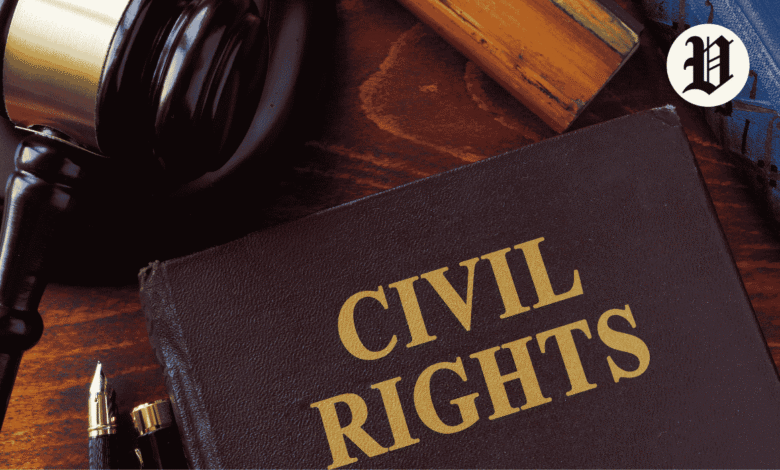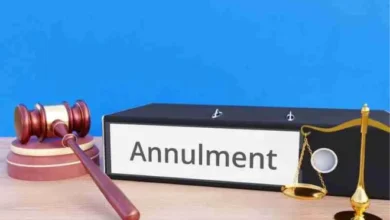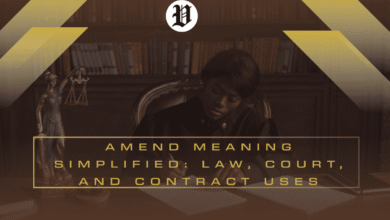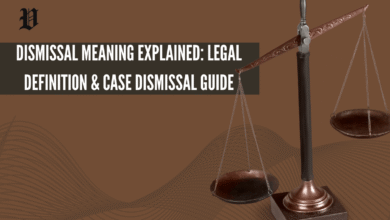Civil Rights in the 21st Century: Progress, Challenges, and the Road Ahead

From Marches to Memes—What’s Changed?
Close your eyes for a second and imagine this: You’re flipping through your phone, half-asleep, when a grainy video stops you cold—a stark image of injustice that’s already sparking protests by morning. Or maybe you’re at a pride parade, watching couples celebrate a freedom that was unthinkable just a decade ago. These snapshots capture the pulse of civil rights today—electric, messy, and deeply human.
Back in the ‘60s, folks like Rosa Parks and John Lewis put everything on the line to dismantle segregation, winning battles that reshaped America with laws banning discrimination in schools, jobs, and public spaces. Fast forward to 2025, and the fight’s grown bigger, messier, more urgent. It’s not just about race anymore—it’s gender, sexuality, disability, even the digital world we’re all tangled up in. We’ve come a long way, no doubt, but new barriers keep rising, fueled by politics, tech, and plain old stubbornness. So, where do we stand now, and what’s it gonna take to keep moving forward? That’s the question we’re all wrestling with.
The New Faces of Civil Rights: A Bigger Tent
The civil rights conversation has stretched to cover so much more than it once did. It’s like the movement traded its old, narrow path for a wide-open field, embracing struggles that didn’t even have names back in the day.
Racial equality is still at the heart of it, building on those ‘60s victories. Now, it’s about digging into the roots of unfair systems—think policing that targets certain communities, housing practices that shut doors, or schools that don’t give every kid a fair shot. Grassroots campaigns have been relentless, shining a light where it’s needed most.
Gender equality’s another big piece. Women have pushed hard against workplace harassment and fought for paychecks that match their male coworkers’. But zoom in, and you see it’s not just about women as a group—race, class, and other factors tangle up the picture, making the fight trickier.
Then there’s the rise of LGBTQ+ rights. From legalizing same-sex marriage to securing job protections, the progress has been stunning. But for trans folks, it’s still a slog, with debates over basic rights like healthcare or even using the right bathroom.
Disability rights have evolved too. It’s not just about wheelchair ramps anymore—though those matter. Today, it’s about making websites usable for everyone and treating mental health with the same urgency as physical health.
And let’s not skip digital rights, the new kid on the block. In a world where our lives are online, it’s about keeping your data private, fighting algorithms that quietly favor some over others, and making sure everyone can even get online in the first place.
This broader vision feels right, like the natural next step. But here’s the rub: With so many voices in the mix, how do we make sure everyone’s heard without stepping on each other’s toes?
People also see: Civil Cases Explained: Lawsuits, Examples & Modern Trends
Technology: The Hero and the Villain
Technology’s a wild card in this story. It’s like that friend who’s always got your back but sometimes causes more drama than you need. On one hand, it’s a megaphone for justice. A single post online can turn a local issue into a global rallying cry overnight. Apps let people report discrimination on the spot, and virtual tools are helping workplaces understand what it’s like to walk in someone else’s shoes.
But then there’s the flip side. Those same algorithms deciding who gets hired or approved for a loan? They can carry old biases, quietly locking out the same groups we’re fighting for. Surveillance tech—think facial recognition or data trackers—often zeroes in on marginalized folks, making them feel like they’re under a microscope. Without tight rules, tech could widen the gaps we’re trying to close.
Here we are in 2025, staring at a world where tech could either lift us up or drag us down. Makes you wonder: Are we steering this ship, or is it steering us?
Civil Rights in the 21st Century: Victories That Light the Way
Let’s pause and give some love to the wins, because there’ve been plenty, even if they don’t always make the evening news. People are more open than ever—friendships across racial lines are way up compared to decades ago, a quiet sign of hearts changing.
Big legal wins have piled up too. Laws now protect against hate crimes based on more than just race, covering things like sexual orientation. Movements born in the streets have forced real changes, like police wearing body cams or companies pledging to diversify their ranks. Same-sex marriage became the law of the land, a victory that felt like a cultural earthquake. Disability protections have gotten stronger, making life more accessible, from buildings to mental health care.
Even the digital world’s seeing progress, with new rules starting to tame the chaos of data collection. Some states are stepping up, passing laws to shield people from discrimination in housing and jobs. It’s proof that when we push—really push—things move. But as one organizer I heard once said, “We’ve climbed mountains, but there’s always another peak.”
To break it down, here’s a timeline of some standout moments:
| Year | Event | Why It Matters |
|---|---|---|
| 2008 | Stronger disability laws | Expanded who’s covered, ensuring more access to work and public life. |
| 2009 | Tougher hate crime rules | Protected more groups from bias-driven violence, a federal step forward. |
| 2015 | Same-sex marriage legalized | Gave couples nationwide the right to marry, a massive cultural shift. |
| 2020 | Police reforms gained traction | Protests led to changes like body cams, aiming to curb unfair policing. |
| 2023 | Digital privacy protections | New state laws started reining in data misuse, guarding personal freedom. |
The Roadblocks We’re Still Facing
But let’s not kid ourselves—the path’s still rocky. In 2025, there are forces pushing hard to roll back what we’ve gained. Some policy proposals want to gut programs that fight discrimination or promote diversity, threatening to unravel decades of work. Voting’s getting tougher in some places, with rules that seem to hit certain communities harder. Immigrants and women’s reproductive rights are caught in a tug-of-war, with policies that feel like punches to the gut.
For LGBTQ+ folks, especially trans people, some states are passing laws that block healthcare or limit how schools can even talk about identity—it’s like a step back in time. Disability rights? The digital world’s still a maze for many, and not everyone has the tech access they need. Globally, we’re seeing a rise in strong-arm tactics that make it harder to speak out or organize, and that vibe’s creeping into our backyard too.
Black communities, in particular, are sounding alarms, saying the hits to economic fairness and democratic rights feel like a crisis. It’s sobering to think about: If our progress can be chipped away this fast, how strong was it to begin with?
Here’s a snapshot of the big issues:
| Issue | Key Focus | Challenges |
|---|---|---|
| Racial Equality | Rooting out systemic bias in justice, education, economy | Voter restrictions, ongoing policing issues, stubborn economic gaps. |
| Gender Equality | Fair pay, reproductive rights, ending harassment | Limits on healthcare access, wage gaps, backlash against inclusion efforts. |
| LGBTQ+ Rights | Marriage equality, job protections, gender-affirming care | State bans on medical care, school restrictions, rising hostility in places. |
| Disability Rights | Access to physical and digital spaces, job fairness | Tech barriers, mental health stigma, spotty enforcement of protections. |
| Digital Rights | Privacy, fair algorithms, equal access | Invasive surveillance, biased tech decisions, gaps in who can get online. |
Frequently Asked Questions
What are civil rights today?
They’re the protections that say nobody should be treated unfairly because of their race, gender, orientation, disability—or even their online presence. It’s about fairness in every corner of life.
How’s technology shaping civil rights?
It’s a double-edged sword: It amplifies voices and organizes movements, but biased algorithms and surveillance can hit marginalized groups hardest without strong rules.
What’s the Supreme Court’s role in all this?
It’s a heavyweight, setting the tone with rulings on marriage or education, though recent decisions have some worried about backsliding on protections.
Why do civil rights differ across states?
It’s a mixed bag—some states push strong anti-discrimination laws, while others tighten restrictions, creating a patchwork of fairness depending on where you are.
What’s being debated in civil rights right now?
Big arguments swirl around diversity programs, access to gender-related healthcare, and balancing free speech with cracking down on hate.
What are the biggest wins of the 21st century?
Think marriage equality, tougher hate crime laws, and protest-driven changes like police reforms, though some are under threat today.
How have civil rights grown to new areas?
They’ve stretched beyond race and gender to include things like online privacy and tech fairness, matching the way our lives have changed.
How can I get involved?
Start where you are: Join a local group, vote on issues that matter, share stories online, and back policies that lift everyone up—small steps add up.
What’s Next for Us?
So here we are, 2025, standing at a crossroads. We’ve got a trophy case full of victories, but the threats looming out there remind us nothing’s set in stone. Technology’s reshaping the game, politics are pulling us in every direction—will we harness these forces to build something fairer, or let them tear us apart? The movements that got us here show what’s possible when people come together, but it’s on all of us to keep that fire burning.
Vote in your local elections, speak up for what’s right, listen to someone whose story’s different from yours. Civil rights aren’t just history—they’re the story of who we are right now. So, what part are you gonna play in writing the next page?





One Comment